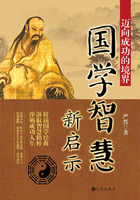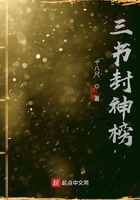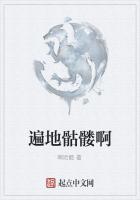It is the mark of substances and of differentiae that, in all propositions of which they form the predicate, they are predicated univocally. For all such propositions have for their subject either the individual or the species. It is true that, inasmuch as primary substance is not predicable of anything, it can never form the predicate of any proposition. But of secondary substances, the species is predicated of the individual, the genus both of the species and of the individual. Similarly the differentiae are predicated of the species and of the individuals. Moreover, the definition of the species and that of the genus are applicable to the primary substance, and that of the genus to the species. For all that is predicated of the predicate will be predicated also of the subject. Similarly, the definition of the differentiae will be applicable to the species and to the individuals. But it was stated above that the word "univocal"
was applied to those things which had both name and definition in common. It is, therefore, established that in every proposition, of which either substance or a differentia forms the predicate, these are predicated univocally.
All substance appears to signify that which is individual. In the case of primary substance this is indisputably true, for the thing is a unit. In the case of secondary substances, when we speak, for instance, of "man" or "animal", our form of speech gives the impression that we are here also indicating that which is individual, but the impression is not strictly true; for a secondary substance is not an individual, but a class with a certain qualification; for it is not one and single as a primary substance is; the words "man", "animal", are predicable of more than one subject.
Yet species and genus do not merely indicate quality, like the term "white"; "white" indicates quality and nothing further, but species and genus determine the quality with reference to a substance: they signify substance qualitatively differentiated. The determinate qualification covers a larger field in the case of the genus that in that of the species: he who uses the word "animal" is herein using a word of wider extension than he who uses the word "man".
Another mark of substance is that it has no contrary. What could be the contrary of any primary substance, such as the individual manor animal? It has none. Nor can the species or the genus have acontrary. Yet this characteristic is not peculiar to substance, but istrue of many other things, such as quantity. There is nothing that forms the contrary of "two cubits long" or of "three cubits long", or of "ten", or of any such term. A man may contend that "much" is the contrary of "little", or "great" of "small", but of definite quantitative terms no contrary exists.
Substance, again, does not appear to admit of variation of degree. I do not mean by this that one substance cannot be more or less truly substance than another, for it has already been stated" that this is the case; but that no single substance admits of varying degrees within itself. For instance, one particular substance, "man", cannot be more or less man either than himself at some other time or than some other man. One man cannot be more man than another, as that which is white may be more or less white than some other white object, or as that which is beautiful may be more or less beautiful than some other beautiful object. The same quality, moreover, is said to subsist in a thing in varying degrees at different times. A body, being white, is said to be whiter at one time than it was before, or, being warm, is said to be warmer or less warm than at some other time. But substance is not said to be more or less that which it is: a man is not more truly a man at one time than he was before, nor is anything, if it is substance, more or less what it is. Substance, then, does not admit of variation of degree.
The most distinctive mark of substance appears to be that, while remaining numerically one and the same, it is capable of admitting contrary qualities. From among things other than substance, we should find ourselves unable to bring forward any which possessed this mark. Thus, one and the same colour cannot be white and black. Nor can the same one action be good and bad: this law holds good with everything that is not substance. But one and the selfsame substance, while retaining its identity, is yet capable of admitting contrary qualities. The same individual person is at one time white, at another black, at one time warm, at another cold, at one time good, at another bad. This capacity is found nowhere else, though it might be maintained that a statement or opinion was an exception to the rule. The same statement, it is agreed, can be both true and false.
For if the statement "he is sitting" is true, yet, when the person in question has risen, the same statement will be false. The same applies to opinions. For if any one thinks truly that a person is sitting, yet, when that person has risen, this same opinion, if still held, will be false. Yet although this exception may be allowed, there is, nevertheless, a difference in the manner in which the thing takes place. It is by themselves changing that substances admit contrary qualities. It is thus that that which was hot becomes cold, for it has entered into a different state. Similarly that which was white becomes black, and that which was bad good, by aprocess of change; and in the same way in all other cases it is by changing that substances are capable of admitting contrary qualities. But statements and opinions themselves remain unaltered in all respects: it is by the alteration in the facts of the case that the contrary quality comes to be theirs. The statement "he is sitting" remains unaltered, but it is at one time true, at another false, according to circumstances. What has been said of statements applies also to opinions. Thus, in respect of the manner in which the thing takes place, it is the peculiar mark of substance that it should be capable of admitting contrary qualities; for it is by itself changing that it does so.















